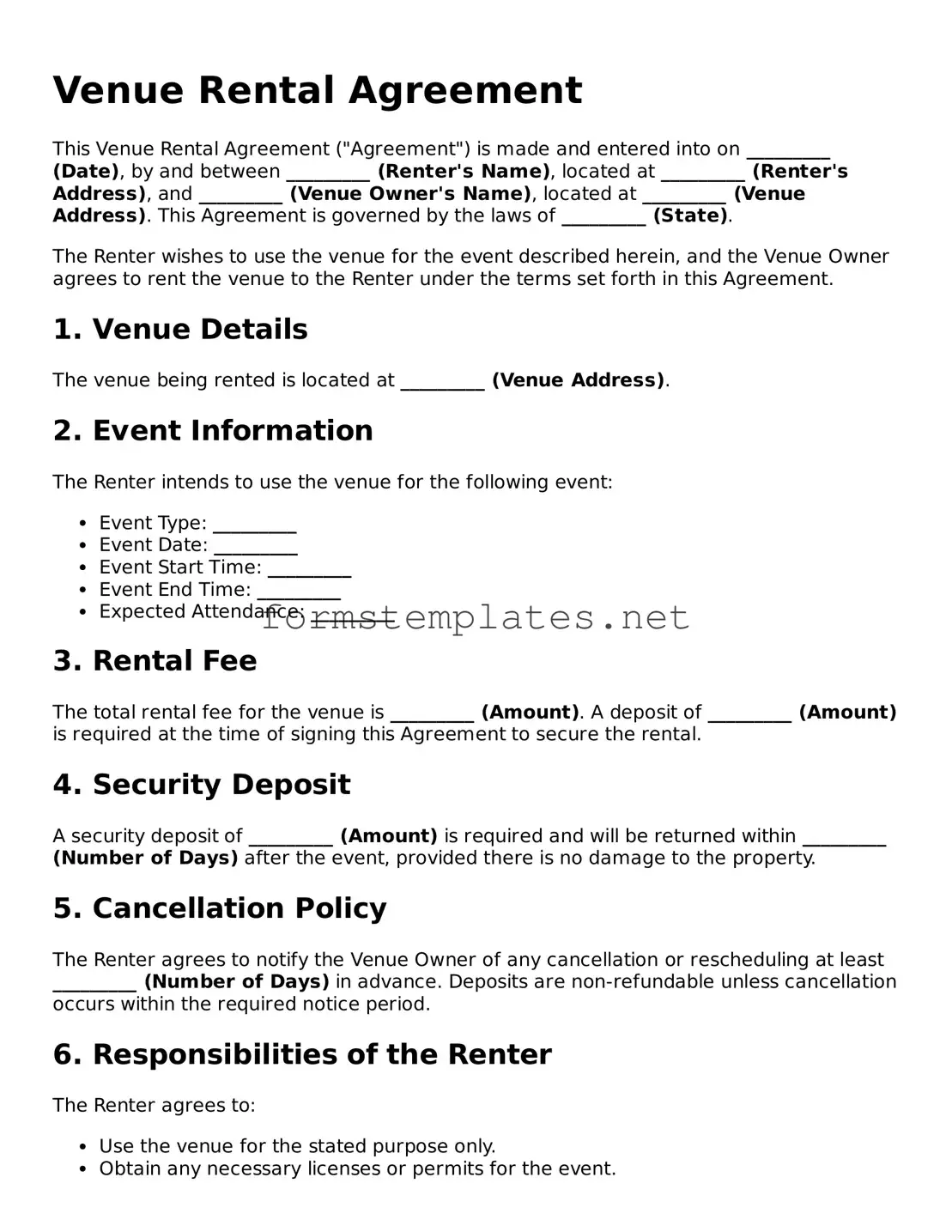Attorney-Verified Venue Rental Agreement Form
The Venue Rental Agreement form is a legal document that outlines the terms and conditions for renting a space for events or gatherings. This agreement serves to protect both the venue owner and the renter by clearly defining expectations, responsibilities, and obligations. Understanding this form is essential for ensuring a smooth and successful event experience.
Open Editor Now

Attorney-Verified Venue Rental Agreement Form
Open Editor Now

Open Editor Now
or
⇓ PDF Form
Your form still needs attention
Finalize Venue Rental Agreement online — simple edits, saving, and download.